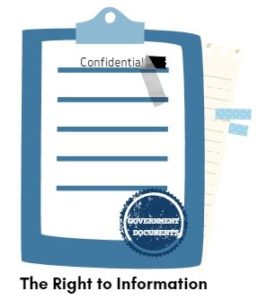 10 August 2022.
10 August 2022.
UNESCO and the Centre for Law and Democracy (CLD) are today launching the Massive Open Online Course (MOOC): Access to Information Laws and Policies and their Implementation, looking at how to access information held by public authorities. This brand-new course on access to information is aimed at both requesters (demand-side) and information providers (supply-side) and covers a wide range of both conceptual and practical issues relating to Access to Information (ATI).
The right to information is an important human right and a democratic need. When citizens exercise their right to access public information they are able to make reasoned choices about their daily lives. In order to guarantee the right to know, it should be protected by law and these laws need to be implemented.
UNESCO and the Centre for Law and Democracy developed this self-paced online course on access to information Laws and Policies and how to implement them. When completing the 8-module course, which should take about six hours, professionals, institutions, governments and citizens can better work together to fulfil their aspiration of building the fair and just knowledge society of tomorrow. Upon finishing the course, participants will also receive a formal certification of completion.
“After completing this course, participants should have a strong understanding of all of the key access to information concepts and tools” said Toby Mendel, Centre for Law and Democracy’s Executive Director. “Designed to be engaging for both seasoned professionals and newcomers to the issue, this course incorporates a wide range of learning tools and approaches”.
The eight modules cover international standards on access to information, development and benefits of access to information, principles of access to information legislation, proactive disclosure, reactive disclosure, exceptions, oversight and implementation of access to information laws. To access the course please go to the dedicated website.
According to UNESCO’s Assistant Director-General for Communication and Information, Tawfik Jelassi, “the course is an important step in building the capacity of a range of stakeholders to ensure public access to information and protecting fundamental freedoms in accordance with national legislation and international agreements”.
Access to Information is an essential tool to strengthen citizen trust and participation. It also gives citizens the means to access justice to claim what is rightfully theirs. This training initiative is part of UNESCO’s initiatives to promote the implementation of Sustainable Development Goal (SDG) indicator 16 on Access to Information. The General Assembly of the United Nations appointed UNESCO in September 2015 as the custodian UN agency for global monitoring of Sustainable Development Goal (SDG) indicator 16.10.2: the “number of countries that adopt and implement constitutional, statutory and/or policy guarantees for public access to information”.
The initiative is supported by the Multi-Donor Programme on Freedom of Expression and Safety of Journalists and the International Programme for the Development of Communication.
****
Link to the online course on Access to Information.
Press Contact
Toby Mendel Jaco Du Toit
Executive Director Chief of Universal Access to Information Section
Centre for Law and Democracy Communication and Information Sector, UNESCO
toby@law-democracy.org j.dutoit@unesco.org
+1 902 431-3686 +33 145681006



